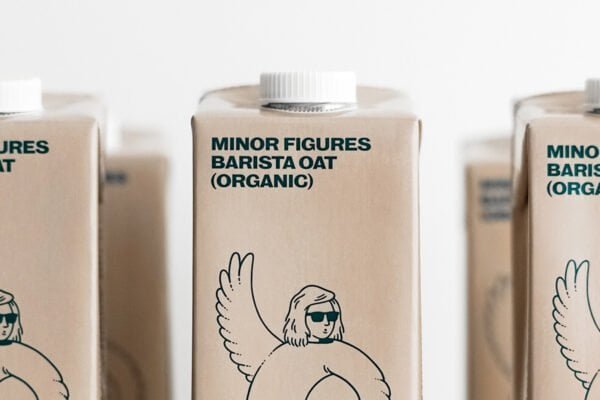The United Nations World Food Program (WFP) predicts that in 2023, even 345.2 million people will face food shortages and that is twice as many people as there were in 2020. The need to address food insufficiency and other related challenges of humanity highlights the need to find possible solutions to meet the aforementioned food insufficiency. Recently, in Lithuania and in the world, there is more and more discussion about plant-based alternatives.
The vision of the future of alternative proteins is presented as a new concept of protein production and consumption that promises a better and more sustainable future food system. This system is designed to address the growing world population, growing demand for animal-based food, climate change, and other issues. Despite the promising concept, the development of alternative proteins, like other innovations, faces challenges. The main challenges are related to economic, legal, health protection issues and the need to change the approach to the production and consumption of products of animal origin.
Uncompetitive prices hinder the expansion of alternative protein production
The cost of alternative protein products is currently higher than conventional products. However, the situation may soon change as there is a growing need to protect against the negative effects of animal meat products and address food insecurity. Economies of scale will be achieved as alternative protein markets expand and feedstock varieties and production processes are optimized. This will reduce the price differences of protein products of different raw materials.

In addition, the costs of traditional meat production in the European Union are expected to increase in the future, as farmers and other recipients of agricultural support are obliged to comply with new management requirements and good agricultural and environmental status standards. New requirements and standards mandate animal welfare, which will require additional investment.
Development is hampered by legal restrictions and uncertainty
In the European Union, there are quite strict requirements for food products and a number of legal acts have been adopted that set the requirements for food production and distribution (e.g. Regulation on novel food products, Regulation on genetically modified food and feed, Regulation on provision of food information to consumers, Regulation on claims about nutrition and health, etc.). Manufacturers and distributors of alternative protein production must also comply with the requirements set out in them. EU legislation places great emphasis on ensuring food safety and consumer rights by applying the principles of non-discrimination and proportionality. However, the legislation governing food products in the EU dominates precautionary principle. This principle applies to all novel foods, including genetically modified foods. Therefore, such products must be tested and authorized for distribution before they enter the market. This inhibits the production of some innovative alternative proteins, creates inequality and unfairness, and slows down the transition to sustainability.
It should be noted that the regulation of innovative food products inevitably always tends to be delayed, leading to considerable legal uncertainty and uncertainty. Therefore, in practice, legal disputes arise and will arise regarding alternative names of protein products, declaration of origin, nutritional and health claims, and discrimination. There will also be a discussion on product labeling, the suitability of innovative production and processing methods used in the production process, and the application of other requirements.

It should be noted that the need for new legal regulation also arises from the strategic goals set by the EU. For example, in the strategy "From farm to table"set goals related to mitigation of climate change, environmental protection, circular economy, transition to sustainable nutrition. The implementation of the set goals inevitably creates the need to prepare new EU legislation or to improve existing ones by setting stricter requirements in environmental protection and other areas.
Existing stereotypes and resistance to innovation
The development of alternative proteins also faces resistance to innovation from traditional livestock producers and fears of losing markets and profits. Therefore, a counter-narrative is possible, stating that alternative protein products are “synthetic”, “processed products”, “fake food”, etc. In addition, representatives of traditional animal husbandry often emphasize the continuity of traditional values and existing practices. However, representatives of traditional animal husbandry can successfully implement new alternative protein technologies by timely responding to inevitable changes and using various financial mechanisms. In this way, businesses will become not only more sustainable, but also more resistant to overcoming emerging threats and challenges.
The inclusion of alternative protein products in the diet is often hindered by personal reasons for choosing food. Consumers generally do not want to change their meat eating habits, and are unaware of the potential health and environmental benefits of alternative protein products. Consumers are also influenced by the attitude towards a new taste, food neophobia, disgust, existing social norms and other motives.

However, the glimmers of change in nutrition are visible. Although initiated by the European Consumer Organization in 2020 investigation showed that about 60 percent Lithuanians do not intend to give up meat and dairy products or reduce their consumption, more than 50 percent. at the same time, respondents said that they would be willing to eat more vegetables and plant-based food. The duality of the answers may be related to the wording of the questions asked during the study: statements about the rejection of animal products form a negative message, while statements about the inclusion of plant products and vegetables in the diet are more positive. Such insights are of great value to alternative protein manufacturers when introducing their products.
By the way, in 2022 "Givi Gali" initiated surveys the results revealed that more than a third (34.8%) of Lithuanians reduced or tried to reduce meat consumption in the last three years. Survey participants were also convinced that plant-based foods are healthy (87.4 %) and animal-friendly (80.4 %). In a country where meat consumption remains relatively high, such emerging trends are encouraging.
Author of the text: Robertas Vaitkus, Doctor of Economic Sciences
______
Sources:
European Consumer Organization (2020). One bite at a time: consumers and the transition to sustainable food. Analysis of a survey of European consumers on attitudes towards sustainable food. https://www.beuc.eu/sites/default/files/publications/beuc-x-2020-042_consumers_and_the_transition_to_sustainable_food.pdf
Communication from the European Commission to the European Parliament, the Council, the European Economic and Social Committee and the Committee of the Regions "A fair, healthy and environmentally friendly food system under the Farm to Fork strategy", COM(2020) 381 final. https://eur-lex.europa.eu/legal-content/LT/TXT/HTML/?uri=CELEX:52020DC0381&from=EN
Standards of good agricultural and environmental protection status. https://zum.lrv.lt/uploads/zum/documents/files/LT_versija/Naujiena/Leidiniai/LZUM_GAAB.pdf
Alive can. (2022). Public survey. Plant-based nutrition through the eyes of Lithuanians. https://gyvigali.lt/naujienos/visuomenes-apklausa-augaline-mityba-lietuviu-akimis/
Lahteenmaki-Uutela, A., Rahikainen, M., Lonkila, A., & Yang, B. (2021). Alternative proteins and EU food law. Food Control, 130, [108336]. https://doi.org/10.1016/j.foodcont.2021.108336
World Food Programme. 2023: Another year of extreme jeopardy for those struggling to feed their families. https://www.wfp.org/global-hunger-crisis
